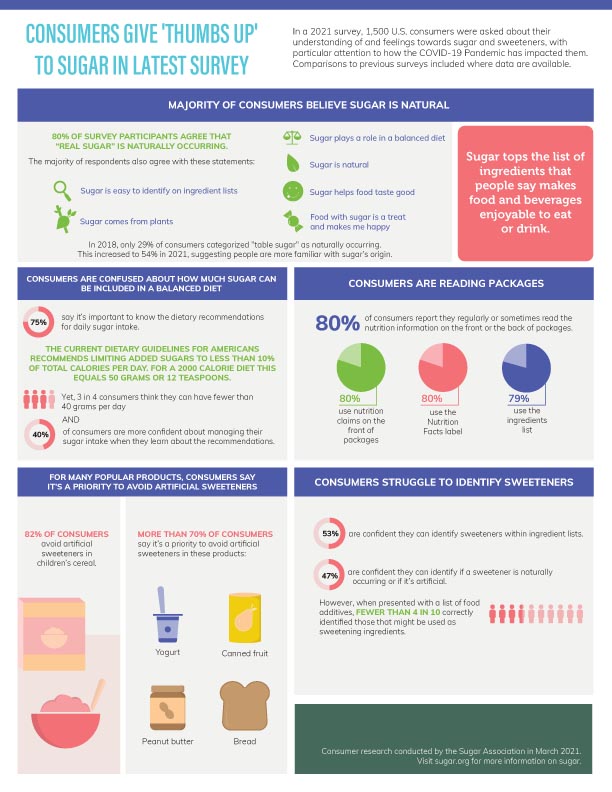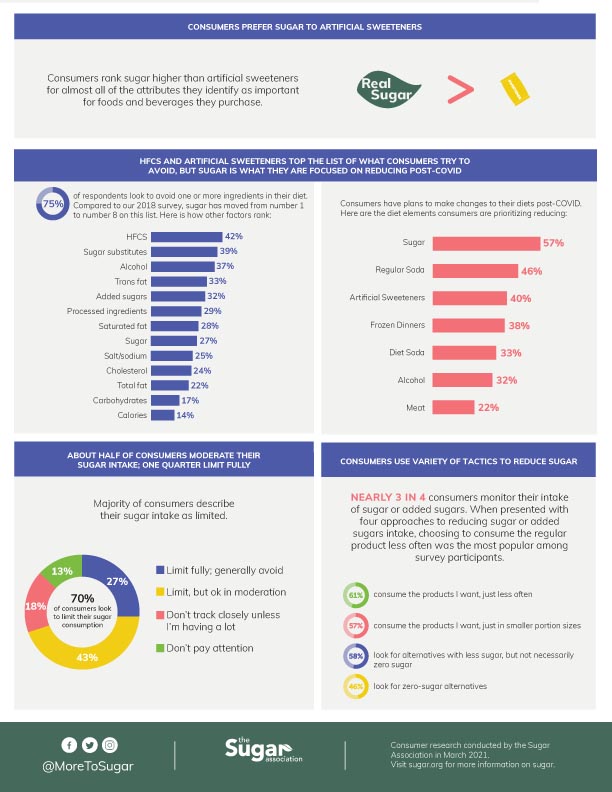A significant majority of consumers understand real sugar originates from plants and is naturally occurring, according to new research conducted by Quadrant Strategies for the Sugar Association. Overall, the research shows consumer attitudes about real sugar are increasingly positive, while the favorability of artificial sweeteners has declined.
“The shift in consumer attitudes about sugar over the last three years shows consumers have a much deeper and clearer understanding of sugar’s plant origin, as well as its role in a balanced diet,” says Courtney Gaine, president and CEO of the Sugar Association. “That is good news and progress for facts, nutrition science and common sense over a lot of the misinformation around sugar we have seen in recent years.”
The study, based on feedback provided by a national, statistically representative sample of 1,500 adults across the U.S., shows:
- Eighty percent of consumers agree that “real sugar” is naturally occurring. Fifty-four percent put “table sugar” in this category.
- More consumers (57 percent) associate sugar with the fun and happiness it provides in their lives, than the guilt (43 percent) sometimes associated with eating sugar.
- Only 7 percent of consumers believe sugar cannot play a role in a balanced diet, as compared to 23 percent who say artificial sweeteners cannot play role in a balanced diet.
- Consumers rank sugar higher than artificial sweeteners in almost all attributes they identify as important for foods and beverages they purchase.
- The top two food ingredients consumers now avoid are high-fructose corn syrup and sugar substitutes. In 2018, the most avoided ingredient was sugar, which has now slid down the list of ingredients being avoided, falling to No. 8.
- More than 70 percent of consumers say they avoid products that contain artificial sweeteners—including bread, yogurt, peanut butter, canned fruit and children’s cereal.
- Seventy percent of consumers avoid or moderate their sugar intake. The top three ways consumers limit sugar is by consuming products with sugar less often, consuming smaller portions, and consuming reduced-sugar products.


Taken as a whole, the new research, when compared to the 2018 findings, shows a significant increase in consumers’ positive perceptions of real sugar and increased consumer skepticism of sugar substitutes.
“Real sugar is an ingredient that consumers know and recognize,” says Gaine. “Increasingly, consumers understand where real sugar comes from. In addition to its roles in many nutritious foods, sugar remains a source of fun and enjoyment for American families, playing a part in a balanced lifestyle.”
For more information about the need for complete and accurate labeling of artificial sweeteners in packaged food, click here.